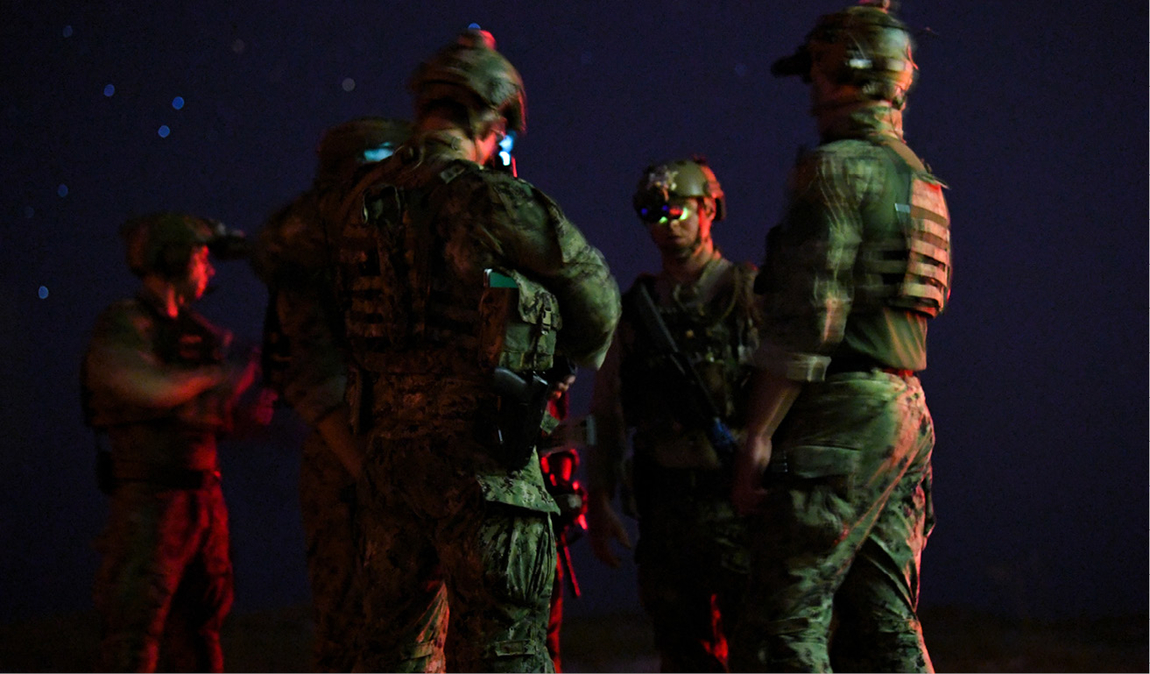
Why the Entire SEAL Team 7 Leadership Team Was Fired
After a series of scandals involving the California-based SEAL Team 7, the entire senior leadership team was fired Friday morning.
Senior management. Collin Green fired the team’s commanding officer, Maj. Edward James Mason, executive officer Lt. Col. Luke Hong Il Im, and their top enlisted adviser, Gen. Hugh Chance Spangler, over what officials called “loss of confidence due to leadership failures that caused a breakdown in good order and discipline in two subordinate units while deployed to combat zones.”
WARCOM has agreed that Capt. Tamara Lawrence told the Navy Times that officials will not determine which trio will replace the three leaders “due to the nature of their work, their safety, the safety of their teammates and their families, and the safety of current and future missions.”

Statements by Lawrence and other SEAL officials to the Navy Times never hinted at a trial for any individual wrongdoing, but instead pointed to significant misconduct by their subordinate units.
Lawrence would not name the two units implicated in the significant misconduct, but they may have been SEAL Team 7’s Foxtrot platoon and another detachment sent to Yemen.
After a boozy July 4 party in Iraq, Special Operations Command superiors sent Foxtrot back to Naval Station Coronado, with ongoing investigations into sexual assault, fraternization and other allegations of misconduct.
Citing the secretive nature of counterterrorism work there, officials have been quieter about the Yemen unit.
Another commanding officer from that detachment was removed from the team, but WARCOM would not name him because he was not part of the leadership trio.
A highly decorated SEAL and highly regarded throughout the special operations community, Mason did not respond to a text message left on a cellphone registered to his name. Other lines were busy.
A native of Minnesota and trained at the Naval Academy, he was commissioned in 1999 and received his current rank 16 years later, according to military records released by the Navy Times.
When reached by phone, Im said “no comment” and hung up.
Also decorated for combat operations in Iraq and Afghanistan, Im has not responded to a text message published by the Navy Times since Aug. 13, when rumors of the trio’s firing first circulated among the Coronado, California-based group.
Originally from New York, Im graduated from the Naval Academy and was commissioned in 2005. He was promoted to lieutenant colonel in 2014. Messages left with Spangler by Navy Times were not returned.
A legend in the special operations community, he enlisted in the Navy in 1987 in Florida and was promoted to command chief/special operations in 2015, according to his service record.
Spangler did not become a SEAL until late 1996, after stints on the guided-missile cruiser Biddle, the amphibious dock landing ship Pensacola and the medium auxiliary surface ship Resolute.
His decorations include eight Bronze Stars with Valor, two Joint Service Commendation Medals with Valor, four Presidential Unit Citations and a Purple Heart.
The revocation of the medals comes at a difficult time for SEAL Team 7 and the larger WARCOM.
The majority of the Foxtrot Platoon will be on leave on September 11, and a Disciplinary Review Board of senior officers is scheduled to meet the following day at Group 1 to investigate and enforce the alleged alcohol violations in Iraq.
The replacements and DRBs also follow Green’s “back to basics” directive on August 20, which warned leaders that he would hold them “accountable for any substandard performance involving your personnel on and off duty.”
Declaring that “a portion of this Force is morally incompatible” with traditional SEAL culture because of those who “fail to correct this behavior” and instead “prioritize this incompatibility over loyalty to the Navy and the Nation,” Green’s four-page memo also ordered his special operators to undergo regulation haircuts, undergo uniform inspections, and remove unapproved patches and other insignia.